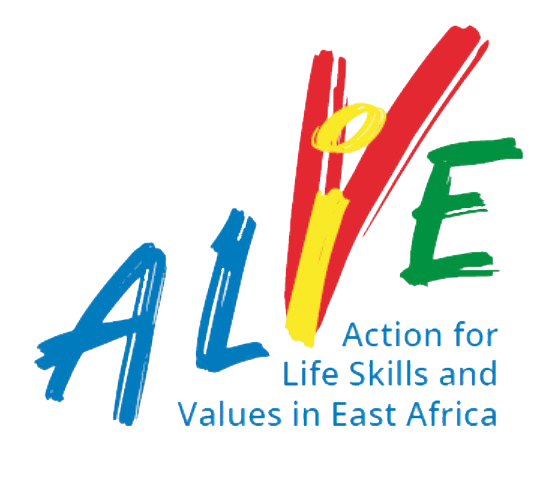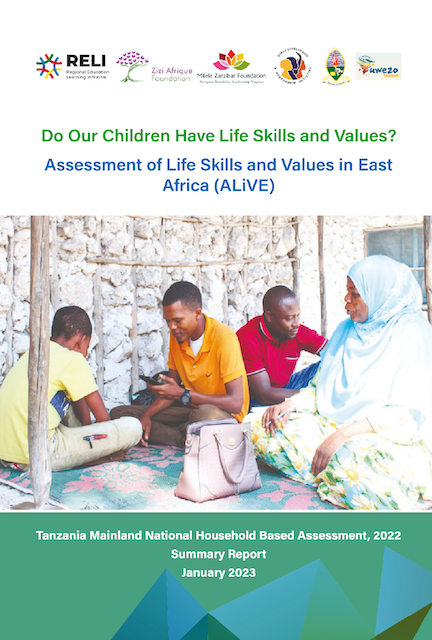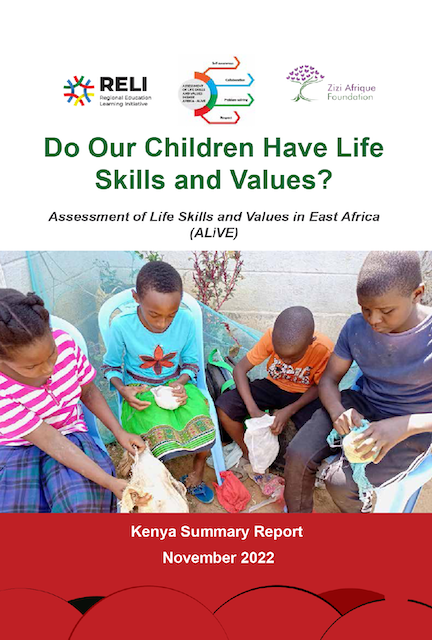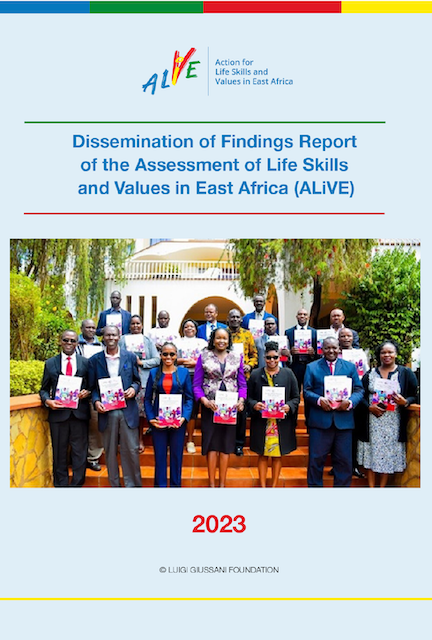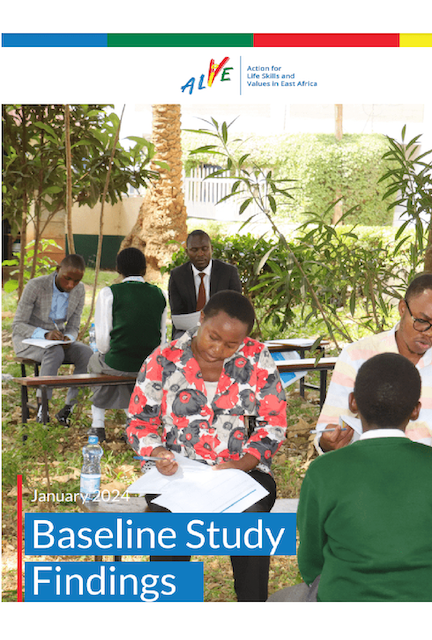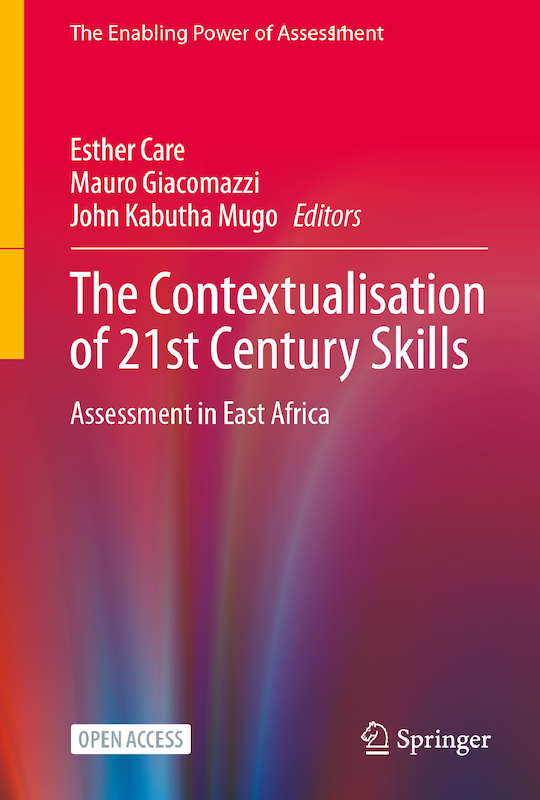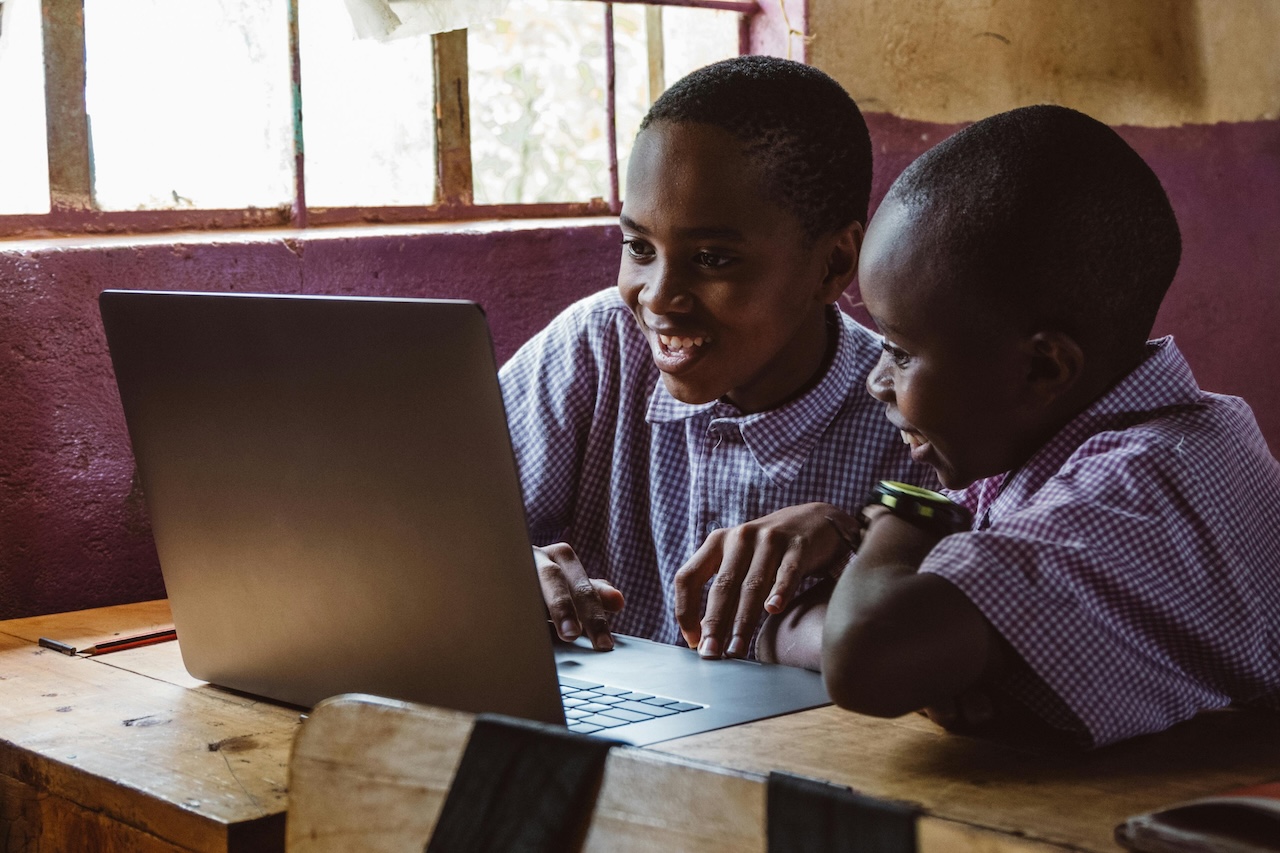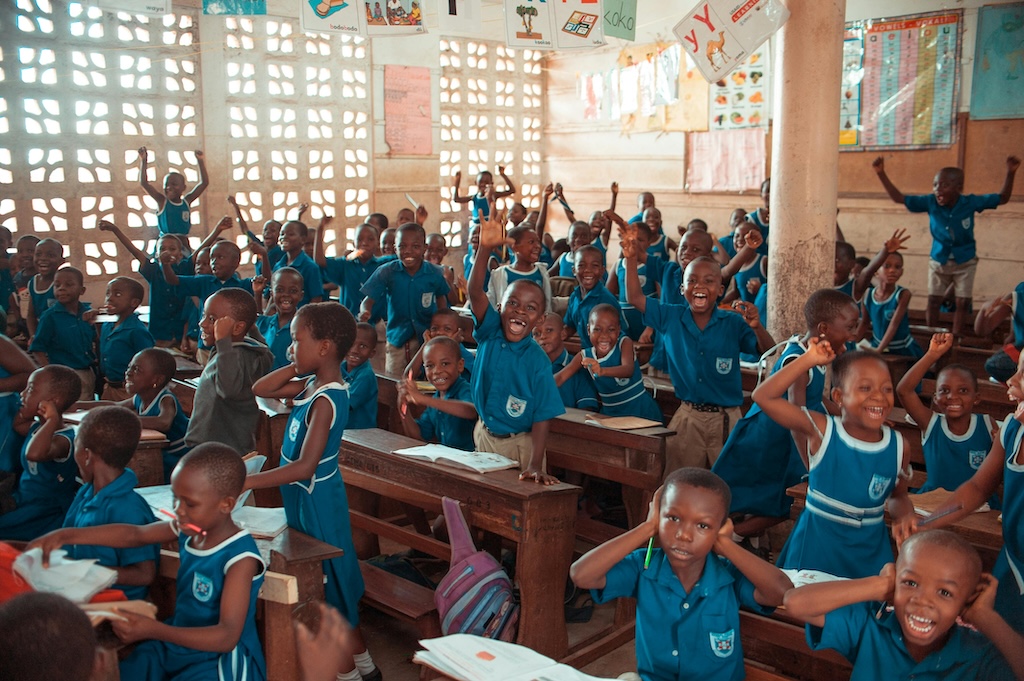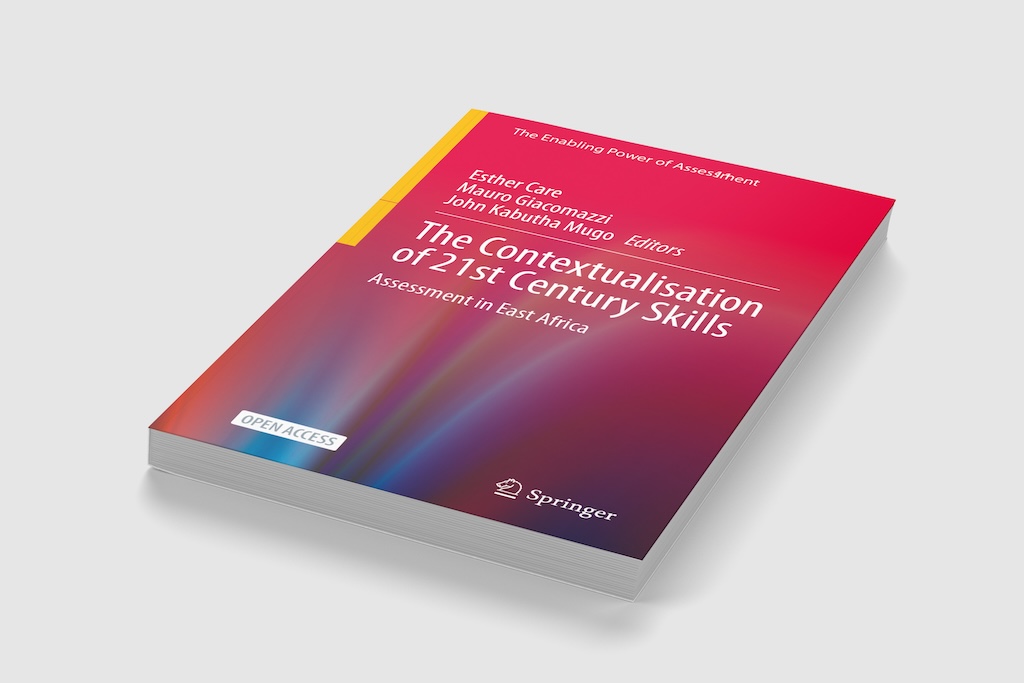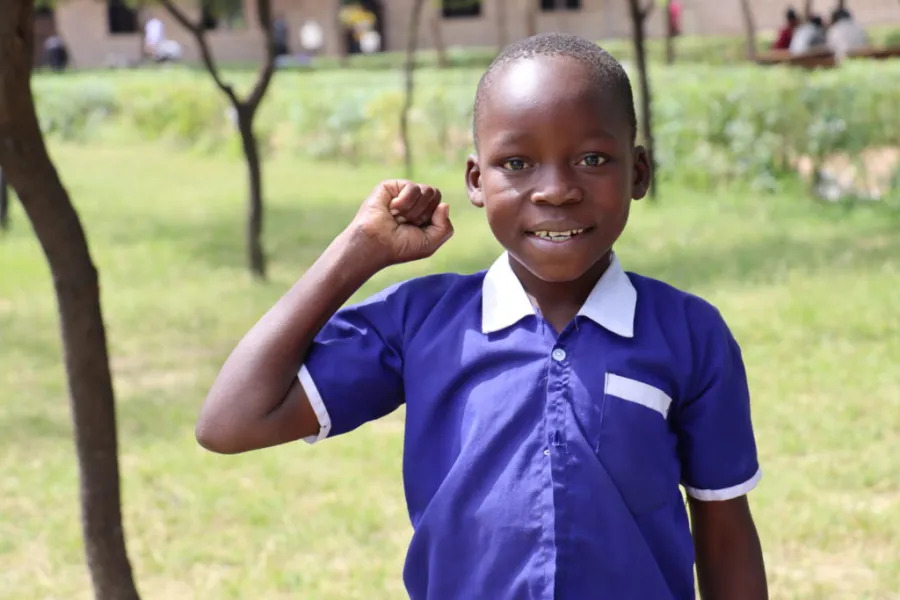The ALiVE assessment was conducted in 34 districts of Tanzania mainland, in July 2022. A total of 14,645 adolescents aged 13 to 17 years were assessed from 11,802 households. This one-on-one assessment was administered orally in the local language (Kiswahili) assessing collaboration, the adolescents worked in groups of four, some in separate gender (boys, girls) and some in mixed-gender groups. The assessment combined the use of scenarios with a scoring rubric to measure the skills, and performance tasks with an observation rubric to assess collaboration. Download
This report is a product of collaborative work among more than 2000 people across Kenya, Tanzania, and Uganda. A contextualized tool developed via a learning-through-doing approach by 47 people, advisory teams of more than 25 local experts, more than 100 trainers, and close to 800 assessors. This work is evidence of fortitude and our story of self-empowerment. ALiVE has developed a valid and reliable tool for assessing problem-solving, collaboration, self-awareness, and respect proficiencies of in and out-of-school adolescents in Kenya. This report draws attention to several issues that have implications for assessing life skills and values as well as developing life skills and nurturing values in East Africa. This is a call to action for all of us – how do we move from having a tool and evidence to ensuring that all our children in Kenya have the needed life skills and values to navigate the 21st-century world? Download
This report outlines the dissemination strategies, geographic scope, target demographics, and key outcomes of the ALiVE assessment findings dissemination efforts. It addresses pre-dissemination learning objectives and questions, highlighting focal areas, lessons learned, and suggestions for future improvements and best practices. Overall, the dissemination exercise not only served as a powerful advocacy tool but also provided a valuable learning experience for all involved stakeholders. It is hoped that this resource will serve as a valuable tool for insights that will be utilized in future engagements of a similar manner. Download
A deeper understanding of 21st century skills in East Africa (Uganda, Kenya and Tanzania) presented in a series of studies conducted in the aforementioned countries. It contextualises an understanding of self-awareness, respect, problem-solving and collaboration determining the skill structure and deriving a toolbox for a large-scale assessment of problem solving in all three countries. Problem Solving: Kenya Respect: Kenya Self-Awareness: Kenya Collaboration: Tanzania Problem Solving: Tanzania Self-Awareness: Tanzania Collaboration: Uganda Problem Solving: Uganda Respect: Uganda Self-Awareness: Uganda Understanding Collaboration: Phase 1 Assessment for Kenya, Tanzania and Uganda Understanding Problem-Solving: Phase 1 Assessment for Kenya, Tanzania and Uganda Understanding Respect: Phase 1 Assessment for Kenya, Tanzania and Uganda Understanding Self-Awareness: Phase 1 Assessment for Kenya, Tanzania and Uganda
To what extent are life skills and values embedded in the primary and secondary education systems of Kenya, Uganda, Tanzania Mainland, and Zanzibar? This study was evidenced by both explicit and implicit mentions of life skills and values in the curriculum, assessment, and teacher training documents/materials of the systems. In the four aforementioned countries of East Africa, the ALiVE Initiative conducted this study gathering the most current baseline information to determine the extent to which life skills and values are embedded in their education systems, providing evidence of how they progress over time. Study outcomes can be used in the future to track the extent to which life skills and values are integrated into their education systems and the advancement of the entire initiative. Download
The world is concerned about young people’s preparedness to face challenges in the workplace, as well as society’s ability to respond to the social and economic issues of the twenty-first century. In response, the education systems in East Africa have incorporated life skills and values into their policies and curricula in the past decade. However, the actual implementation and incorporation of teaching and learning practices that foster these skills in the classroom is mostly unexplored. It has also been noted that tools used to measure 21st century skills in non-western contexts have been borrowed from western literature. This leaves no room for different understandings and conceptualisations of the skills to be measured. The Assessment of Life Skills and Values in East Africa (ALiVE) team addressed the gap in existing literature by exploring the understanding of collaboration, problem solving, self-awareness, and respect in the East African context through rapid ethnographic interviews. Each of these constructs are represented in the education systems of Kenya, Tanzania, and Uganda. The researchers interviewed a total of 368 participants (80 from Kenya, 55 from Tanzania, and 95 from Uganda). Of these, 76 participants were adolescents; 78 were parents; and 76 were teachers. What emerges in the East African context is how personal identity incorporates more communitarian descriptions of the self in contrast to the Western individualism. Consequently, several conceptual, ethnographic, and epistemological elements affected the designing of data collection tools, frameworks, the processes of data collection, and data analysis. The findings are explored with the book. Download https://link.springer.com/chapter/10.1007/978-3-031-51490-6_3
More than 15,000 delegates gathered in Mombasa for the annual Kenya Primary School Headteachers Association (KEPSHA) conference 2024 under the theme, “Transformative Leadership in the Digital Transition, for Inclusive and Sustainable Quality Basic Education in Kenya.” The conference, which also doubled as the KEPSHA Annual General Meeting, was officially opened by the Chief of Staff and Head of Public Service in Kenya, Mr. Felix Koskei. Highlights from key speakers are presented below: Mr. Felix Koskei, Chief of Staff and Head of Public Service in Kenya There is value in utilising digital technology in order to improve learning and in the advancement of school leadership and management. Additionally, there is need for collective responsibility in ensuring that the digital transition does not erode learners’ values. “Global digital transformation has redefined how we learn, how we teach and how we lead. We urge all teachers to make digital literacy an integral part of every learner’s journey, equipping them with the skills to become suitable digital citizens and innovators of the future. Technology is the way to go because it supports both delivery and assessment of our curriculum. The assessments in teacher training colleges will all go digital both in administration and marking. We look forward to leveraging technology in similar ways in our schools too. I thank you teachers for taking charge of the 2024 Kenya Primary School Education Assessment (KPSEA), which concluded without challenges. I am happy that we did not need police officers to man assessment centres with guns as had been the case before. This is a huge relief because assessment should be done in a cheerful and relaxed atmosphere.” Dr. Belio Kipsang, Principal Secretary for Basic Education The leaders reiterated the need for deliberate integration of values and life skills in education, to help develop a whole learner who will be ready for opportunities and challenges of the 21st century. “Primary school education is not merely a phase, it is a critical level where we embed essential values, cultivate skills and instil competencies upon which students rely for their journeys in life. We appreciate that education is a sum of intelligence and character. Allow me to share wisdom from an old man who taught me never to hire for competencies alone but to always hire for character. This is because, you can train people to acquire skills, but you cannot teach them to become who they are not – in character.” Mr. Johnson Nzioka, KEPSHA National Chairman Headteachers were urged to embrace technology as a vehicle to effectively navigate the complexities of modern leadership. The government was also called to employ more teachers who would share in the growing workload of the progressing competency-based curriculum. “We are not just gathered to celebrate our achievements but also to launch a new chapter in our story, a chapter defined by a revitalized identity, renewed commitment and a bold vision for the future of primary and junior school leadership in Kenya. We can only look into the future with purpose, passion and professionalism. A future where every child in Kenya can access quality education and where every school headteacher is empowered to lead with excellence.” Dr. John Mugo, Executive Director of Zizi Afrique Foundation and Principal Investigator of ALiVE Zizi Afrique Foundation’s digital journey and the power of technology as a tool for transformative change. Of note, Zizi Afrique led many tech-based initiatives even during the COVID-19 pandemic, to foster household learning in marginalized communities. This and many other initiatives demonstrated technology’s power to expand access to educational information and interaction across communities. Zizi Afrique thrives on continued partnerships with the ministries of education, teachers, parents, and other education stakeholders. With a special mention of long-time partner KEPSHA, one of the sponsors of this KESPHA conference 2024. “We must use technology to enhance the learning experience. Previously, teachers spent a quarter of the lesson time drawing on and rubbing the chalkboard. Today, simple concepts in science or math can be illustrated using videos and virtual reality. This is the way to improve learning outcomes, especially for those facing learning difficulty and with special needs. We do not work to create parallel solutions to government. We have adopted systems change, supporting the public education system to improve so that it works for all children. In Bungoma County for instance, we distributed tablets loaded with content for parents to get involved in their children’s learning. We also had radio and short message service (SMS) technology for learning and continuity. We had tailored messages to create awareness amongst parents, while raising questions on how best they would support their children to learn even at the household level.” Ms. Virginia Ngindiru, the Director of Innovations and Practice at Zizi Afrique Foundation As part of a panel discussion, “Unlocking the Prospects for Enhancing Parental and Community Engagement in Schools by Addressing the Digital Divide”, Ms. Virginia Ngindiru called for parental engagement in the desired value-based education. Parents are key actors in foundational learning. They are the custodians of values and are partners in promoting inclusion of children living with disability and they support the identification and nurturing of talents for holistic learning. They must be engaged. Ms. Nyambura Thiong’o, RELI Kenya Country Coordinator Representing Ms. Margaret Wawira, the C.E.O of RELI Africa, highlighted a key challenge – limited access to requisite infrastructure further compounds marginalization among learners furthest behind. Access to devices, accessories, electricity, and storage facilities, often present prohibitive costs. Data privacy and security, weak policies, and resourcing gaps for digital technology inclusion are among the challenges that complicate the use of technology in education. In Closing At the end of the ceremony, Mr. Koskei urged teachers to commit to a functional, resilient, and thriving education system. He also called on headteachers to be prudent and accountable as they handle school funds and resources. In the current financial year, the government allocated 627 billion shillings for the education sector. The weeklong conference closing ceremony was presided over by Cabinet Secretary for Education, Hon. Migos
On November 19th 2024, ALiVE launched its open-source platform. A one-stop centre that shares is our lessons learned and knowledge gained since our inception in 2021. You can access the platform and if you’re interested, watching the launch.
Join Prof. Esther Care, Dr. Mauro Giacomazzi, John Kabutha Mugo, and many more from the 12th to 14th March 2024 as they discuss “The Contextualization of 21st Century Skills: Assessment in East Africa” – a book as discussing the need for assessments of life skills and values in the East African community at the CIES 2024 conference. You can download this free book and/or listen to the launch.
Since its launch in 1990, the ‘Education for All’ Initiative has grown worldwide recognition, even as the world has become increasingly complex, and the future even more unpredictable – driven by innovation and knowledge, but also confronted by unresolved political, environmental, and health challenges. In seeking to attain the Sustainable Development Goals by 2030 in sub-Saharan Africa has necessitated resilient effort to transform education systems to graduate learners well-equipped for 21st century living and working. Fortunately, education systems in Kenya, Tanzania, and Uganda are integrating values and life skills, albeit at varying levels. Kenya is already implementing a curriculum that has integrated 8 values and 7 core (21st century) skills. Uganda has integrated life skills in both policy and curriculum. A new curriculum has been introduced for the secondary level, and this includes 21st century competencies. Tanzania is revisiting and revising the National Life Skills framework and through the support of UNICEF, has even developed a detailed strategy and tools for formative assessment of selected life skills at primary and secondary levels. In all three countries, the values and life skills group of Regional Education Learning Initiative (RELI) has given a significant contribution to the processes and tools. Subsequently, governments have acknowledged the worth of these competencies in determining success in learning, life, and work for the 21st century learner. However, the real work is just beginning. First, there is little clarity on what works, and support and accountability are needed to move beyond written intentions to working classroom practices and finally attain sustainable outcomes. The region is yet to document evidence on whether some life skills are more critical than others. In all three countries, there is an acknowledgment that appropriate and contextualized tools are needed to assess outcomes in these areas to measure progress and improve policy and practice. To address these challenges, RELI initiated a three-year project on Assessment of Life Skills and Values in East Africa (ALiVE). The ALiVE initiative targets adolescents (aged 13 to 17 years) in and out of school, focusing on four life skills competencies: self-awareness, collaboration, problem-solving, and respect. It aims to: Develop context-relevant, open-source tools for assessing life skills in East Africa. Undertake household assessments targeting adolescents with the aim of generating evidence. Use the evidence to draw attention to and increase awareness on the worth of these competencies among stakeholders (public policy advocacy). Elevate RELI-VaLi to a regional community of practice on methods and measurement of life skills, replicable at the national and regional levels for sustainability through transnational alliance building. Enhance peer learning and feedback among the RELI member organizations working on improving learning outcomes in East Africa through learning, sharing and capacity strengthening.
